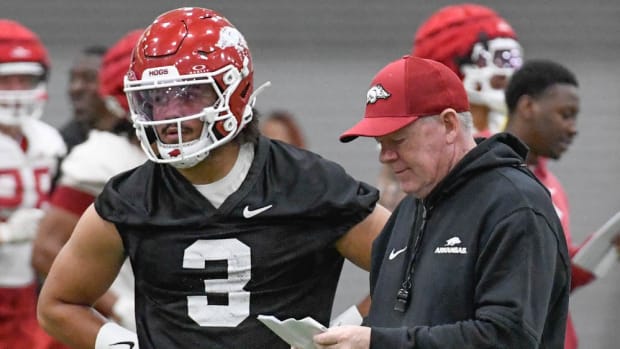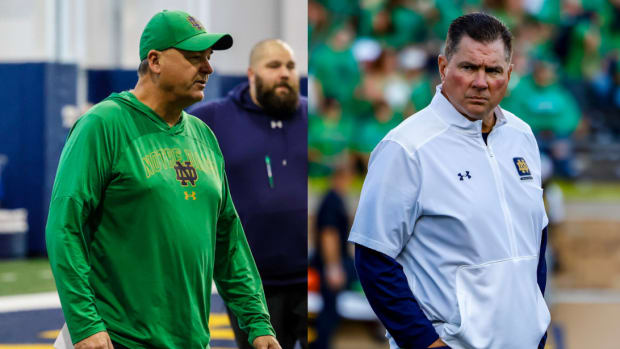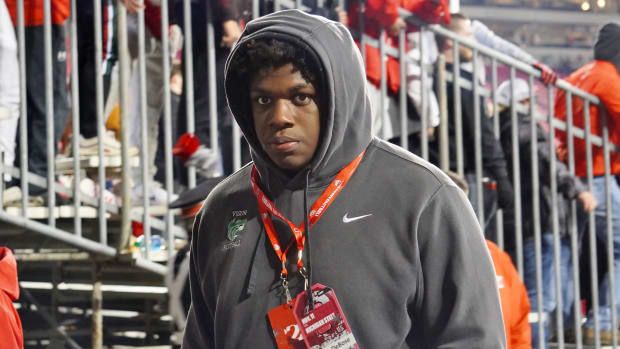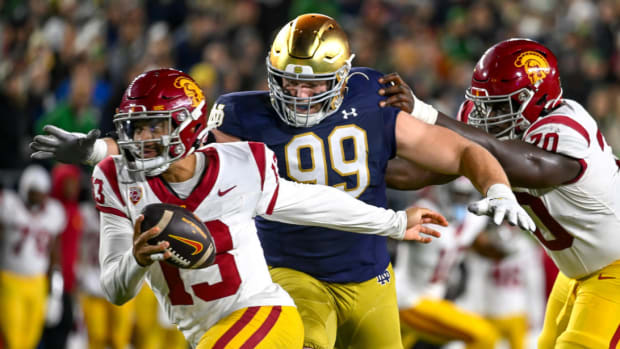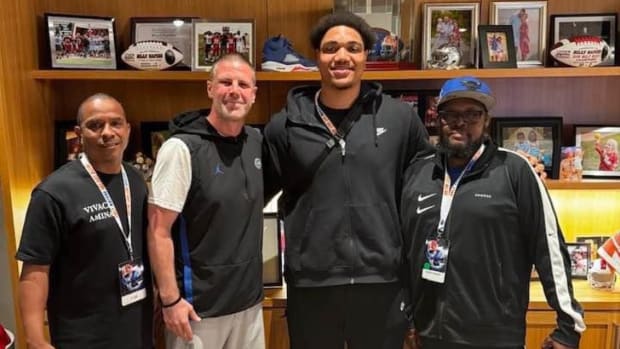Why the Ed Reed-Bethune Cookman Relationship Ended Before It Began
Ed Reed will not be Bethune-Cookman’s head coach after the school chose not to ratify his contract this past weekend, a decision ultimately made by the university’s interim president, Lawrence Drake. Why the school moved on and what happened in the aftermath intertwines two main issues: HBCUs hiring celebrity football coaches (specifically this one) in the wake of Deion Sanders’s successful run at Jackson State, and how people talk about HBCUs.
A request by Sports Illustrated for interviews with multiple Bethune-Cookman administrators was denied by a school spokesperson, who pointed to a statement on the school’s website that explained, in part, “As we continued to observe him, we felt that his behavior was not aligned with the traditions of our founder, Dr. Mary McLeod Bethune, and the university.” It reads as if Reed was operating as Bethune-Cookman’s coach on a probationary basis without clarity around when he was officially hired after an agreement in principle was announced Dec. 27.
And Reed certainly was doing the job.
He was not made available for comment when SI tried to contact him through an intermediary and his foundation, but Reed was working behind the scenes on renovating Bethune-Cookman’s athletic training center, building a new locker room and, crucially, an on-campus practice field, according to him and one of his staffers in an appearance on Roland Martin’s digital show, so his team didn’t have to bus to the school’s stadium more than 15 minutes off campus.
An email obtained by SI from the parent of a recruit on campus during Reed’s last day on the job describes a son crestfallen that he wouldn’t be able to play for the national and Super Bowl champ. It was one of many displays of sadness about the situation, from football players and scores of students who protested on the Daytona, Fla., campus who are frustrated by what they believe was the unjust removal of someone trying to do something about their plight at a school that has struggled to raise funds and was most recently rocked by Hurricane Ian in October.

Reed spent the past year as a senior football advisor for the Miami Hurricanes.
Jasen Vinlove/USA TODAY Sports
Reed independently made millions as one of the best safeties to play the game. That matters because of the vantage point he comes from when he makes statements about the “broken mentality” of school leadership and “I’ve been here for a week and done more than people who have been here for frickin’ years.”
You would be hard-pressed to find an employer that would be O.K. with an employee making a public statement like that to half a million followers on Instagram. Factor in that Reed wasn’t technically an employee because he didn’t have an official contract, and you can see how it would not be the best start if Reed wanted alignment with school leadership. Things got rockier when Reed posted another video on Instagram (which he has since apologized for), where he was clearly frustrated about his contract situation and his office not being cleaned out, among other things.
Reed’s level of stardom will always be higher than the football program’s, which is the risk you run when you hire a celebrity coach. It’s not a blanket rule to say a school shouldn't make a hire like this, but it is a risk when they do. Reed has his own foundation and a personal mouthpiece that far exceeds the school’s reach and definitely doesn’t fall inside its purview.
In a positive sense, it can quickly raise the profile of the school and bring more people into the tent, including potential donors—which Reed says he’d bring along with contributing his own money to the program. But, in a negative sense, it can be a sideshow that snowballs out of control when things break bad—which things clearly did, leading to Reed calling athletic director Reggie Theus “evil” and saying Drake was lying in his appearance earlier on Martin’s show.
But for those who have worked at Bethune-Cookman—or any institution fallen on hard times—it is obvious it wouldn’t be palatable for an outsider to come in and tell you what you are doing is wrong in the way Reed did. His statements come across as punching down, which is far too easy to do when taking a 30,000-foot view of an underfunded HBCU. Understanding the true depths and reasons things are the way that they are—anywhere—involves more than just reading up on the issues; it requires listening and learning for a long time.
You can’t just bill yourself as a change agent and claim to have all the answers coming directly from one of college sports’ penthouses at Miami, where Reed played and spent three years as a support staffer. The time spent builds bonds with the people you work with and can promote alignment across the campus. Reed either skipped that step entirely or, at the very least, blazed through it without appropriate care.
Reed’s particular gripe at the end at Bethune-Cookman is clear: The school essentially tried to get him to take the fall for the separation with a draft version of a statement read during one of Reed’s Instagram Lives saying he withdrew his name. It is understandable that someone who is as proud and passionate as Reed would not want a press release to read as though he quit on the task at hand or the young men he felt responsible for—including the recruits he already brought in and players he started to build relationships with, who circulated a petition showing support of their now-former coach.
Reed said he believed it made him look as though he was lying to recruits and players and parents—or at least like he was misleading them about his intentions to stay in the job. The school should have taken the brunt of responsibility from the beginning (which it did in the end), because the process is now laid bare as to how it got there. We saw it play out on Reed’s own Instagram page, which is an unfortunately fitting place for this chapter to end.

